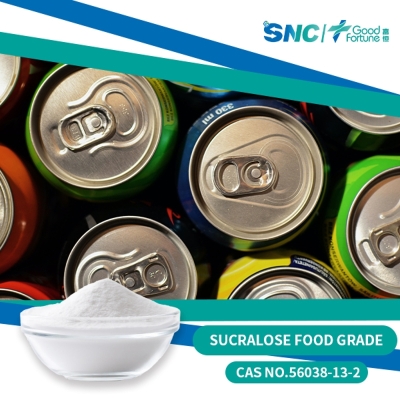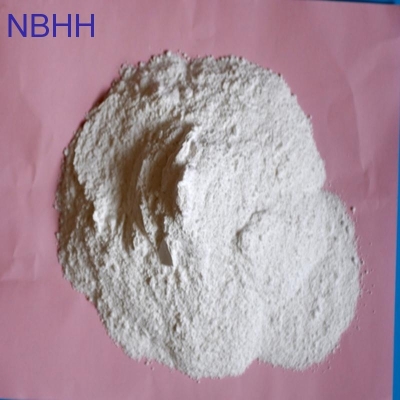-
Categories
-
Pharmaceutical Intermediates
-
Active Pharmaceutical Ingredients
-
Food Additives
- Industrial Coatings
- Agrochemicals
- Dyes and Pigments
- Surfactant
- Flavors and Fragrances
- Chemical Reagents
- Catalyst and Auxiliary
- Natural Products
- Inorganic Chemistry
-
Organic Chemistry
-
Biochemical Engineering
- Analytical Chemistry
-
Cosmetic Ingredient
- Water Treatment Chemical
-
Pharmaceutical Intermediates
Promotion
ECHEMI Mall
Wholesale
Weekly Price
Exhibition
News
-
Trade Service
Original: more likely to gain weight, affect intestinal health, increase the risk of diabetes.
Audit expert: Wang Guizhen
National level dietitian
With the improvement of living standards, people began to pay more and more attention to physical health
So, what exactly is going on with sugar-free drinks? Is it a healthier option?
In recent years, net red sugar-free drinks have become the new favorite of the beverage industry, and many people who like to drink sweet drinks and worry about gaining weight have begun to choose to drink sugar-free drinks
According to research data, the post-90s have paid more and more attention to the sugar content in beverages, and nearly 60% of consumers have purchased sugar-free beverages, and the sales of sugar-free beverages in 2019 increased by 10% year-on-year, higher than the overall growth rate
Many beverage lovers believe that sugar-free drinks "0 sugar", "0 fat" and "0 calories" can be drunk casually, which can enjoy the fun of sweets and will not gain weight, which is much
Sugar-free beverages reduce the energy and sugar content
The General Principles of Nutrition Labeling for Prepackaged Foods (GB28050-2011) stipulates that the sugar content of each 100ml or 100g of food is ≤0.
Sweeteners commonly used in sugar-free beverages can be divided into nutritional sweeteners and non-nutritive sweeteners
Nutritional sweeteners will still provide a certain amount, while non-nutritive sweeteners will have a negligible amount
China's food additives use health standards GB2760-2014 allowed to use a total of 19 kinds of sweeteners, its safety has been affirmed by domestic and foreign food and drug regulatory agencies, within the scope of the provisions can be safely used, some commonly used sweeteners as follows:
However, safety does not mean that it is good for health, and consumers may be misled because of sugar-free, resulting in long-term, large-scale drinking of sugar-free beverages, which makes consumers dependent on their taste, nerve and psychology, thus bringing the following risks
>>>> are more likely to gain weight
For people who lose weight, daily drinking products are still recommended to drink boiled water, mineral water, pure water
Drinkers feel that "drinking a zero-calorie drink" will subconsciously indulge themselves in excessive food intake, resulting in excessive calories, which may not be conducive to weight loss, but will gain weight
>>>> affects intestinal health
The intestinal flora can use some sweeteners that are not absorbed by the human body, and some people may have gastrointestinal discomfort
On July 17, 2020, studies from mexico's National Institute of Medical Sciences and Nutrition showed that different sweeteners can affect different intestinal flora and are involved in the metabolic pathways of lipopolysaccharide and short-chain fatty acid synthesis, and the study animal experiments showed that rats that consume calorie-containing sweeteners have more microbial diversity
That is to say, long-term intake of sweeteners, especially non-nutritive sweeteners, is likely to cause imbalances in the number and diversity of intestinal flora and affect intestinal health
>>>> nutritional imbalances
Many sugar-free drinks have a high sweetness, which leads to long-term drinkers needing high sweetness to feel satisfied, and low-sweetness foods are not enough for them, such as some low-sweetness fruits and vegetables
Therefore, people who regularly drink sugar-free drinks containing sweeteners may use these drinks to replace the position that fresh, nutritious foods should occupy, and the quality of the diet continues to decrease, resulting in nutritional imbalances
.
>>>> increase the risk of developing type 2 diabetes
Sugar-free beverages that use some sweeteners as sugar substitutes do not reduce the chance of developing type 2 diabetes, but rather make the risk greater
.
For example, sucralose, which is not toxic in itself, may cause intestinal reception dysfunction after entering the human digestive system, resulting in an increase in glucose absorption by the human body and increasing the risk
of type 2 diabetes.
In addition, many sugar-free drinks also contain caffeine, carbonic acid and so on
.
Long-term drinking is easy to cause addiction, bloating, flatulence and other uncomfortable symptoms, and has adverse effects on
people's nervous system and heart.
Having said so much about the impact of sugar-free drinks, is it still recommended to drink sugar-free drinks? Which is the best sugary and sugar-free beverage?
Drinking or not sweetening sugar-free beverages depends on the correct treatment of sugar-free beverages
.
From the perspective of overall dietary adjustment, the replacement of sugar-free drinks with sugar-free drinks is not the ultimate goal, but a healthy diet.
For people with a high degree of sweetness dependence, sugar-free drinks containing sweeteners can be used as an auxiliary tool to adjust the diet to reduce sugar intake
.
The human body ingests sugars, will produce glycosylation reactions, which is a normal physiological phenomenon, which occurs all the time in the body, and glycoproteins produced by glycosylation reactions play an important role
in maintaining the normal operation of the body.
The Dietary Guidelines for Chinese Residents (2016) advocate that the daily sugar intake per person should not exceed 50g, and the best recommended amount is less than
25g.
Generally healthy people, normal maintenance of sugar intake on the line, there is no need to control sugar to drink sugar-free drinks
.
For people who want to lose weight (fat loss and weight loss), you can reduce the intake of sugar and other carbohydrates in the right amount, do the right amount of exercise, and control the balance
between total daily energy intake and consumption.
People who especially like sweets can relieve hunger and reduce their sugar intake by drinking sugar-free beverages in moderation, but the frequency and intake are low
.
It is generally recommended that the initial substitution, process reduction, no more than 1 time a week, each drink no more than 1 bottle (500mL), develop a healthy low-sugar diet
.
If sugar-free beverages are needed, it is recommended to use erythritol as a sweetener for sugar-free beverages, which are equally sweet, have lower energy intake and a lower
incidence of gastrointestinal discomfort.
In addition, aspartame (prepackaged foods are marked as contained or not) is not suitable for patients with phenylketonuria, and patients with inflammatory bowel disease should avoid foods
containing artificial sweeteners.
For people with diabetes and other diseases, eating habits must follow the doctor's advice, and you must not find sugar-free drinks to replace daily drinks
.
In the past 20 years, with the rapid development of China's economy, people's living standards have gradually improved, and their lifestyles have also undergone great changes
.
Especially with the popularity of television and mobile phones, the advent of the Internet and the Internet of Things era, people's overall physical activity has decreased year by year, but the types and quantities of diets are more abundant
.
In the case of constant or increased energy intake, the decrease in physical activity is the main factor causing people to continue to increase overweight and obesity, and overweight obesity is an important factor
leading to cardiovascular disease, diabetes, cancer and so on.
Sugar intake is reduced only through sugar-free beverages, without controlling the intake of other substances and total energy, and when the total energy intake is greater than the total energy consumed by the human body, it will still lead to overweight and obesity
due to weight gain.
How to enjoy the various foods in life while ensuring good eating habits, so as to have a healthy body?
For people who are in good health and have normal body fat, it is recommended to exercise for 30 minutes a day or 150 minutes
per week.
The daily diet can be
arranged according to the recommended amount of food in the "Scientific Research Report on Dietary Guidelines for Chinese Residents (2021)" organized by the Chinese Nutrition Society.
In addition, Xiaobian recommends that the risk of poor health can be reduced by increasing or decreasing the intake of certain meals, and the specific intake recommendations refer to table 1 and Table 2
below.
I believe that through a reasonable diet, maintain normal sugar intake, and insist on exercise, you can have a healthier body!
The article originated from the Beijing Science Center
Responsible Editor:







